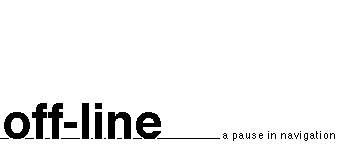Yes, it’s boring. I feel uncomfortable about boring my readers
with more comments on spam.
And I am bored with it as I could possibly be. But it’s
getting worse all the time – and it’s a bigger problem
than just a nuisance. In international debates two four-letter
words appear often together. Spam and scam.
There are, of course, many scams that don’t use spamming,
and maybe there could be some spam that isn’t a scam (though
it’s hard to find any believable example.) In addition to
spam, invasive techniques of all sorts (including pop-ups and other
web tricks) are often associated with scams (as well as spam.)
One of many examples of scam spamming is the
“African” confidence game, that appeared to be widely
spread two years
ago but since then has been expanding on an unbelievable scale
(making up also imaginary situations in other parts of the
world, including Iraq after the war.) From some online
reports it appears that the swindlers are persuading people
to give away not just personal data or credit card numbers,
but also blank signed letterhead, copies of identity papers,
access to bank accounts, etcetera. How can anyone be so
naive? But that’s the nature of the confidence game...
exploiting greed (with an especially nasty twist,
profiteering from the problems of remote countries in
trouble.) The victims, in this case, are accomplices (or so
they think.) But that is no excuse for the swindlers.
The spam messages of this sort are multiplying with such
frequency that there must be people somewhere falling into
those traps. But these problems aren’t reported in mainstream
media. People aren’t properly warned. And, while, years ago,
some other scams were investigated and the swindlers brought
to court, no effective action appears to be in place against these
– or a variety of other scams that include miracle drugs,
rejuvenation, sexual “enlargement”, phony
university degrees, easy loans, easy money... and all sorts of
other obvious, or not-so-obvious, tricks and swindles.
And, to make things worse, there are more and more
viruses that generate large quantities of phony e-mail sent
from “stolen”, or artificially made up, mailboxes.
(As usual, only a few of those worms are reported in
mainstream media – and some relatively weak infections get
more publicity than the most serious and dangerous.)
Spam and scam aren’t the same thing, but they often go
together. Major interests (in politics, in the economy and in
the information system) have been incredibly lackadaisical
and complacent for years about this growing disease. There
have been business interests, and even business schools,
preaching so-called “e-mail marketing” as a
legitimate and effective business tool, pretending to
overlook the fact that it’s simply spam –
and that it’s the preferred tool for scam.
Extensive legal and political resources are being
committed to questionable causes, such as treating as
a “crime” the private use of unregistered
software or a personal copy of a piece of music. Invasive
techniques are being used to spy on innocent people with a
variety of excuses (from “pornography” to
terrorism) while action against spam and scam is weak, clumsy
and ineffective. This is one more example of what a forgotten
rock group called Bim was singing twenty years ago.
«The world turns, and the candle burns, and
the blind lead the blind.»



